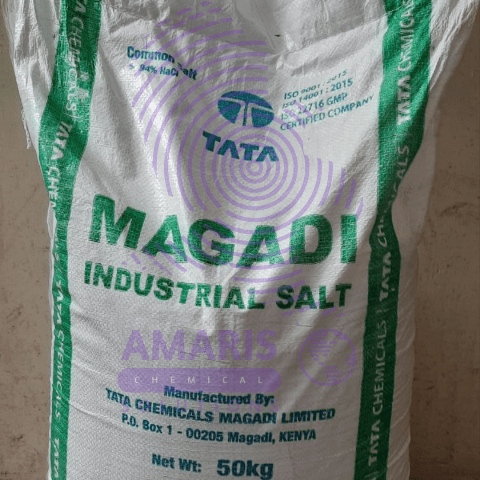Understanding the Importance of Industrial Salt in Food Preservation and Beyond

Overview:
Industrial salt, often referred to as sodium chloride (NaCl), is a key ingredient with a rich history in food preservation. Its significance extends beyond preserving food to various industrial applications. Here’s an exploration of its role in food preservation and its broader impact.
Food Preservation:
- Preservative Properties:
- Industrial salt is a powerful preservative due to its ability to draw moisture out of food. By creating a hypertonic environment, salt dehydrates bacteria and other microorganisms, inhibiting their growth and preventing spoilage.
- Salted meats, fish, and pickled vegetables are examples of foods preserved using this method, allowing them to be stored for extended periods without refrigeration.
- Flavor Enhancement:
- Beyond preservation, industrial salt enhances the flavor of food. It balances sweetness, reduces bitterness, and intensifies the natural flavors of ingredients, making it an essential component in culinary applications.
- Fermentation Aid:
- Salt plays a crucial role in fermentation processes, such as in the production of sauerkraut and kimchi. It controls the growth of lactic acid bacteria, which are responsible for fermenting the food, while suppressing harmful bacteria.
Beyond Food Preservation:
- Industrial Applications:
- Chemical Manufacturing: Industrial salt is a fundamental raw material in the production of chlorine, caustic soda, and other important chemicals used in various industries, including plastics, paper, and textiles.
- Water Treatment: Salt is essential in water softening processes. It regenerates ion-exchange resins, removing calcium and magnesium ions that cause water hardness, thus protecting plumbing and improving the efficiency of soaps and detergents.
- De-icing and Anti-Icing: In colder climates, industrial salt is spread on roads and walkways to melt ice and snow, preventing accidents and ensuring safety. It lowers the freezing point of water, making it a vital component in winter maintenance.
- Agriculture:
- Salt is used in animal feed to provide essential minerals, ensuring livestock health and productivity. It also aids in soil conditioning and nutrient balance in agricultural practices.
Environmental and Safety Considerations:
While industrial salt is invaluable, its usage comes with environmental considerations. Overuse in de-icing can lead to soil and water contamination, affecting plant life and aquatic ecosystems. Therefore, responsible use and management practices are necessary to mitigate its environmental impact.
Conclusion:
Industrial salt is more than just a food preservative. Its applications span various industries, playing a critical role in manufacturing, water treatment, agriculture, and more. Its versatility and effectiveness make it indispensable, but careful management is essential to balance its benefits with environmental stewardship.


 Emollients
Emollients Humectants
Humectants UV Filters
UV Filters Surfactants (cosmetic)
Surfactants (cosmetic) Preservatives (cosmetic)
Preservatives (cosmetic) Fragrances and Essential Oils
Fragrances and Essential Oils Antioxidants (cosmetics)
Antioxidants (cosmetics)
 Solvents (lab)
Solvents (lab) Chromatography Chemicals
Chromatography Chemicals Microbiology and Cell Culture Reagents
Microbiology and Cell Culture Reagents Biochemical Reagents
Biochemical Reagents Inorganic and Organic Standards
Inorganic and Organic Standards Spectroscopy Reagents
Spectroscopy Reagents Molecular Biology Reagents
Molecular Biology Reagents
 Precious Metal Extraction Agents
Precious Metal Extraction Agents
 Plasticizers
Plasticizers Polymerization Initiators
Polymerization Initiators Stabilizers
Stabilizers Monomers
Monomers Fillers and Reinforcements
Fillers and Reinforcements Antioxidants (plastics)
Antioxidants (plastics) Colorants (plastic pigments,Dyes)
Colorants (plastic pigments,Dyes)
 Fertilizers
Fertilizers Plant Growth Regulators
Plant Growth Regulators Soil Conditioners
Soil Conditioners Animal Feed Additives
Animal Feed Additives Biostimulants
Biostimulants
 Dough Conditioners
Dough Conditioners Flour Treatments
Flour Treatments Fat Replacers
Fat Replacers Preservatives (baking)
Preservatives (baking)
 Surfactants (cleaning)
Surfactants (cleaning) Builders
Builders Bleaching Agents
Bleaching Agents Enzymes
Enzymes Solvents (cleaning)
Solvents (cleaning) Fragrances
Fragrances Disinfectant
Disinfectant Metal cleaning
Metal cleaning
 Binders/Resins
Binders/Resins Pigments
Pigments Solvents (paint)
Solvents (paint) Additives
Additives Driers
Driers Anti-Corrosion Agents
Anti-Corrosion Agents Specialty Coatings
Specialty Coatings Functional Coatings
Functional Coatings Application-Specific Coatings
Application-Specific Coatings
 Sealants and Adhesives
Sealants and Adhesives
 Biodegradable Surfactants
Biodegradable Surfactants Bio-based Solvents
Bio-based Solvents Renewable Polymers
Renewable Polymers Carbon Capture Chemicals
Carbon Capture Chemicals Wastewater Treatment Chemicals
Wastewater Treatment Chemicals
 Preservatives (food)
Preservatives (food) Flavor Enhancers
Flavor Enhancers Acidulants
Acidulants Sweeteners
Sweeteners Emulsifiers
Emulsifiers Antioxidants (food)
Antioxidants (food) Colorants (food)
Colorants (food) Nutrient Supplements
Nutrient Supplements Nutraceutical Ingredients
Nutraceutical Ingredients
 Fresh Herbs
Fresh Herbs Whole Spices
Whole Spices Ground Spices
Ground Spices Spice Blends
Spice Blends
 Surfactants(oil)
Surfactants(oil)
 Antibiotics
Antibiotics Active Pharmaceutical Ingredients
Active Pharmaceutical Ingredients Excipients
Excipients Vaccine Adjuvants
Vaccine Adjuvants Nutraceutical Ingredients
Nutraceutical Ingredients Solvents (pharmaceutical)
Solvents (pharmaceutical)
 Automotive chemicals
Automotive chemicals Pyrotechnic Chemicals
Pyrotechnic Chemicals


 Vulcanizing Agents
Vulcanizing Agents Accelerators & Retarders
Accelerators & Retarders Antidegradants
Antidegradants Reinforcing Agents
Reinforcing Agents Plasticizers & Softeners
Plasticizers & Softeners Fillers & Extenders
Fillers & Extenders Blowing Agents
Blowing Agents Adhesion Promoters
Adhesion Promoters












